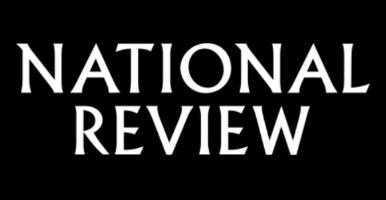This piece originally appeared in National Review on February 7, 2020.
The IRS isn’t known for respecting privacy. Under the Obama administration, IRS bureaucrats famously — or infamously — harassed Tea Party groups and their supporters. Decades earlier, the agency targeted feminist and LGBT groups. But reform is on the horizon, and the public seems ready.
The IRS wants to end its requirement that some nonprofits report the names and addresses of their donors on tax forms. The new rule would require only charities whose donors receive a tax deduction, and electioneering groups, to provide this information.
The proposal has received a flood of positive comments this winter from individuals and nonprofits alike, and supporting comments outweighed critical ones nearly two to one, despite an organized effort to heap negativity at the proposal during the final days of the comment period.
“This change will reduce the chilling effect of the regulation on citizens’ First Amendment freedoms and leave confidential data less exposed without hindering legitimate enforcement efforts,” wrote a group of eleven state attorneys general in support of the reform.
Americans are less likely to support social causes when the government is looking over their shoulder. Indeed, the Supreme Court long has recognized that compelled disclosure “chills” freedom of speech and association. This is true even when the government promises to keep personal information confidential.
Sadly, confidentiality in government seems mostly aspirational these days. Hacks of government databases and leaks of “private” information are commonplace. At the Office of Management and Budget and the IRS, weak data security has exposed sensitive information numerous times in recent years.
At the IRS, leaks have had political ramifications. In 2014, the IRS settled a lawsuit brought by the National Organization for Marriage after its donor list was illegally given to one of its fiercest critics. The IRS spent years cleaning up after its various abuses in the Tea Party targeting scandal. No one should trust the agency with databases of donor information for groups promoting social change.
When donor identities are publicly revealed, intentionally or otherwise, it can lead to harassment and intimidation of supporters of unpopular causes. This problem, too, has grown worse in recent years. In the Internet age, it is easier than ever for a delusional activist to track down and harass Americans for their beliefs. When Representative Joaquin Castro (D., Texas) tweeted the names of Trump-campaign donors this summer, there were reports within a day of Trump supporters receiving threatening and harassing phone calls.
Under the new rule, the IRS could obtain donor information through its ordinary investigatory process. The reform simply would end the practice of requiring all nonprofits to report this information annually, whether it is needed or not. The IRS should not warehouse sensitive personal information that it rarely needs and cannot keep safe.
Some critics of the reform evidently are confused about the law. A group of 16 Democratic senators wrote that “Americans have a right to know who is paying to influence our democracy.” Yet the donor information collected by the IRS was never allowed to be public. It isn’t even shared with the Federal Election Commission or any other federal agency.
Do these senators want IRS bureaucrats to violate federal law and release confidential donor records? If not, what are they talking about?
Calls to strengthen transparency should be aimed at the government itself, not at American citizens who join or support nonprofits. Everyone has the right to support causes they believe in without retaliation from the tax collector.
The IRS should be commended for its commonsense privacy reform. Too often, government fights to keep any modicum of power it has, no matter how trivial. Here, the IRS and the public agree: Privacy must be protected.














